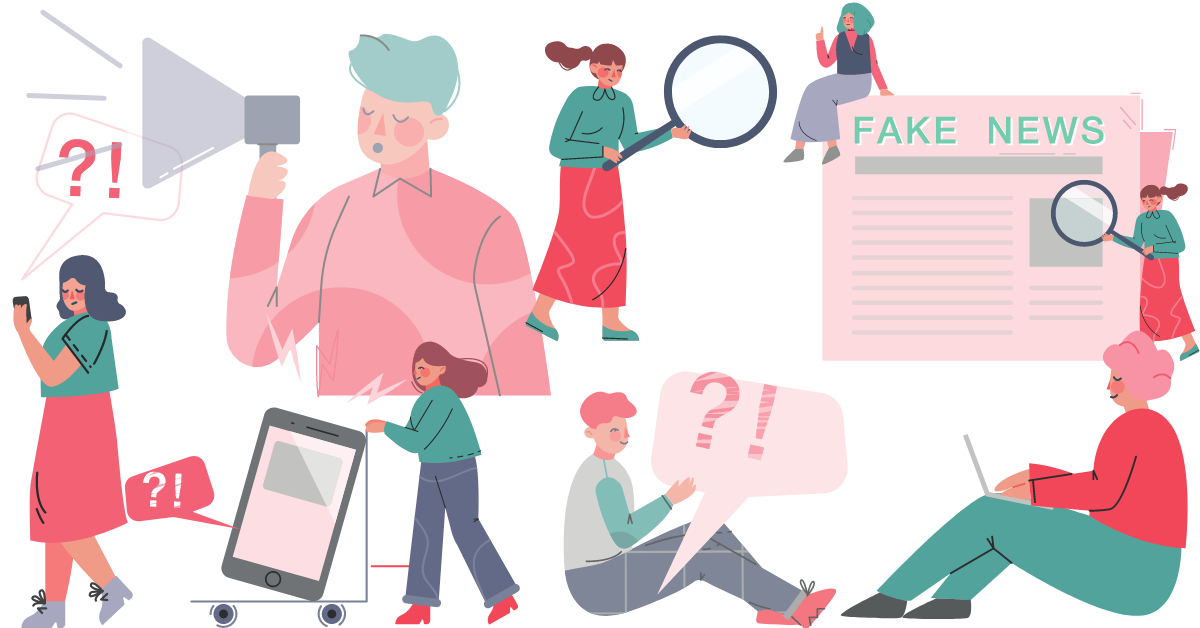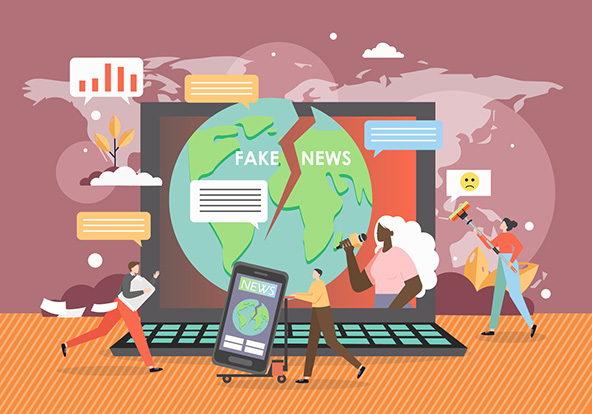blog
The Ethics of Quoting Anonymous Sources in News
In journalism, the practice of quoting anonymous sources has long been a contentious issue. On one hand, anonymous sources can provide critical information that would otherwise remain hidden from the public. On the other hand, reliance on unnamed individuals raises questions about transparency, credibility, and accountability. Balancing the need for confidentiality with the ethical responsibilities of journalism is no easy task.
This article examines the ethics of quoting anonymous sources, exploring why they are used, the risks they pose, and how journalists can ensure their use is justified and responsible.
1. Why Are Anonymous Sources Used?
Anonymous sources are often essential in investigative journalism and breaking news. They play a crucial role in uncovering corruption, misconduct, or sensitive matters where whistleblowers or informants fear retaliation.
Protecting Whistleblowers
In many cases, anonymous sources are individuals who risk severe consequences—such as job loss, harassment, or legal action—if their identity is revealed. By granting anonymity, journalists can protect these individuals and encourage them to speak up about important issues.
For example, the Watergate scandal, one of the most significant stories in modern journalism, relied heavily on an anonymous source known as “Deep Throat.” Without anonymity, the revelations that ultimately led to President Nixon’s resignation might never have come to light.
Access to Sensitive Information
Some information is only accessible through anonymous sources. Government officials, corporate insiders, or individuals with knowledge of confidential matters often require anonymity to share what they know. Journalists rely on these sources to provide insights that would otherwise remain inaccessible.
Breaking Stories Quickly
In fast-moving news cycles, anonymous sources can offer immediate details about ongoing events, such as political decisions, court proceedings, or security issues. These updates help journalists keep the public informed in real time.

2. Ethical Concerns Surrounding Anonymous Sources
Despite their value, quoting anonymous sources introduces several ethical challenges. Journalists must navigate these concerns carefully to maintain credibility and uphold journalistic standards.
Lack of Accountability
Anonymous sources are not held publicly accountable for their statements, which can lead to the dissemination of false or misleading information. Critics argue that unnamed sources can use their anonymity to promote personal agendas, spread rumors, or manipulate narratives without consequence.
Impact on Credibility
Over-reliance on anonymous sources can undermine a news outlet’s credibility. Readers may question the authenticity of reports based on unnamed individuals, particularly if such sources are used frequently or without sufficient justification.
Risk of Misinformation
Journalists must thoroughly vet anonymous sources to ensure they are credible and their claims are accurate. Failure to do so can result in the publication of false information, damaging both the outlet’s reputation and public trust in journalism.
Ethical Obligations to Sources
Granting anonymity creates a moral obligation to protect the source’s identity. If journalists fail to uphold this promise, the source could face severe consequences, and the journalist’s integrity may come into question.
3. Guidelines for Using Anonymous Sources Ethically
To address these concerns, many news organizations have established strict guidelines for the use of anonymous sources. These guidelines help ensure that anonymity is granted only when necessary and that the information provided is reliable and accurate.
Use Anonymity as a Last Resort
Journalists should exhaust all other options before agreeing to keep a source anonymous. If the information can be obtained through public records, on-the-record interviews, or other means, anonymity should not be granted.
Confirm Credibility
Before quoting an anonymous source, journalists must verify the individual’s credibility. This often involves corroborating their claims with other sources, documents, or evidence. Verification minimizes the risk of publishing false information and ensures the story is built on a solid foundation.
Disclose Context
While the source’s identity remains hidden, journalists should provide as much context as possible about why anonymity was granted. For example:
- “A senior government official, who requested anonymity to discuss confidential policy decisions…”
- “An employee, fearing retaliation from their employer, shared…”
This context helps readers understand the source’s position and motivations, enhancing transparency without compromising confidentiality.
Avoid Single-Source Reporting
Whenever possible, journalists should corroborate information from anonymous sources with additional sources or evidence. Relying solely on a single anonymous source increases the risk of errors and undermines credibility.
4. Balancing Public Interest with Ethical Responsibilities
The decision to quote an anonymous source ultimately comes down to balancing public interest with ethical considerations. Journalists must weigh the importance of the information against the potential risks and challenges associated with granting anonymity.
When Anonymity Serves the Public Interest
Anonymity is most justifiable when the information serves a significant public interest. For instance:
- Exposing corruption or misconduct
- Uncovering safety hazards or public health risks
- Reporting on political decisions that impact large populations
In these cases, the value of the information outweighs the potential downsides of anonymity.
Avoiding Sensationalism
Journalists must resist the temptation to use anonymous sources solely to make stories more sensational or dramatic. Anonymity should never be used to bypass journalistic rigor or inflate the perceived importance of a story.
5. Legal Implications of Anonymity in Journalism
Granting anonymity also involves legal considerations, as journalists may face pressure to reveal their sources in court. While many countries recognize the importance of source protection, laws vary widely.
Shield Laws
In some jurisdictions, shield laws protect journalists from being forced to disclose their sources. These laws vary by country and, in the United States, by state. However, they are not universal, and journalists may still face legal challenges.
Contempt of Court
In cases where no legal protections exist, journalists who refuse to reveal their sources may be held in contempt of court. This has led some reporters to face fines or jail time for protecting their sources.
Best Practices
To minimize legal risks, journalists should:
- Consult legal experts or editors before granting anonymity
- Clearly explain the terms of confidentiality to the source
- Keep detailed, secure records of communications with anonymous sources

6. Famous Examples of Anonymous Sources in Journalism
Throughout history, anonymous sources have played a pivotal role in uncovering groundbreaking stories. These examples illustrate how anonymity can serve the public interest when used responsibly.
The Watergate Scandal
As mentioned earlier, the anonymous source “Deep Throat” provided crucial information to reporters Bob Woodward and Carl Bernstein, leading to the resignation of President Richard Nixon.
The Pentagon Papers
In 1971, an anonymous whistleblower provided classified documents revealing the U.S. government’s misleading statements about the Vietnam War. This leak, later known as the Pentagon Papers, changed public perception of the war.
Modern-Day Whistleblowers
Anonymous sources have continued to expose major stories, such as data breaches, government surveillance programs, and corporate misconduct. These cases demonstrate the ongoing relevance of anonymity in journalism.
7. Future Trends in Anonymous Reporting
As journalism evolves, new technologies and societal changes are shaping the use of anonymous sources.
Digital Tools for Source Protection
Encryption tools like Signal, ProtonMail, and SecureDrop allow journalists to communicate securely with anonymous sources. These tools protect both the journalist and the source from surveillance or hacking.
Increasing Scrutiny
As misinformation becomes a growing concern, audiences are demanding greater transparency in journalism. This has led to increased scrutiny of anonymous sources, emphasizing the need for rigorous standards and accountability.
Global Perspectives
In some countries, where press freedom is limited, anonymous sources remain essential for exposing human rights abuses or government corruption. As global challenges grow more interconnected, the ethical use of anonymity will remain a cornerstone of responsible journalism.
Conclusion
The ethics of quoting anonymous sources in news is a complex issue that requires careful consideration. While anonymity can provide access to critical information and protect vulnerable individuals, it also raises questions about accountability, credibility, and transparency. By following strict guidelines, prioritizing public interest, and leveraging new technologies, journalists can use anonymous sources responsibly and effectively.
Ultimately, the power of anonymous sources lies in their ability to illuminate the truth in circumstances where it might otherwise remain hidden. When used ethically, they are an invaluable tool in journalism’s mission to inform, engage, and empower the public.

